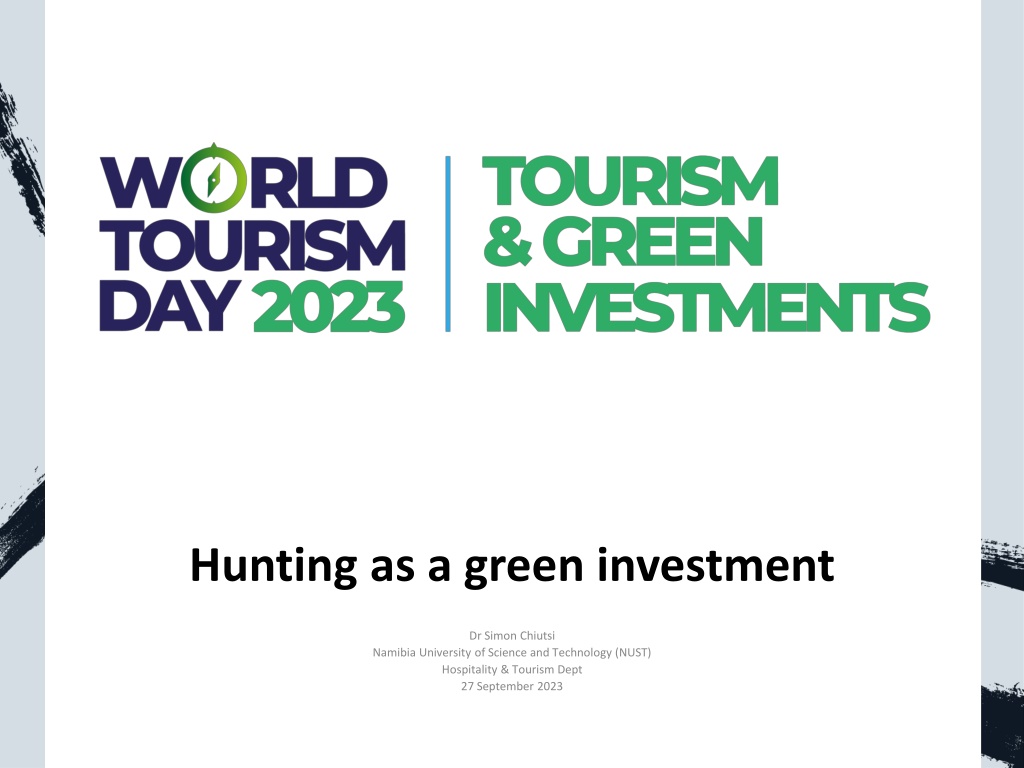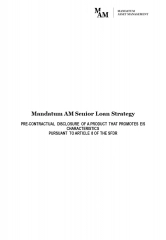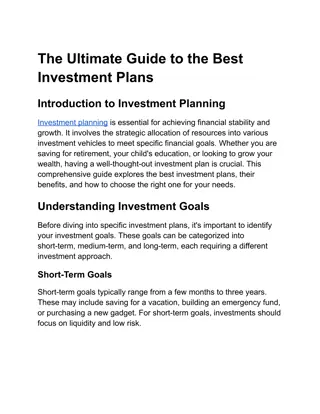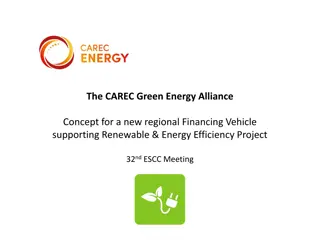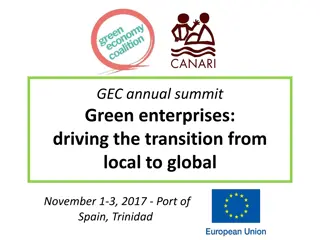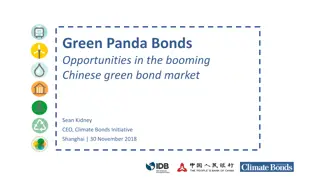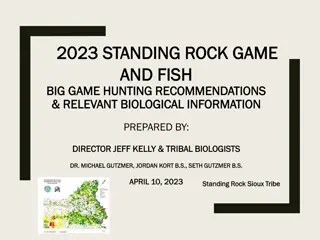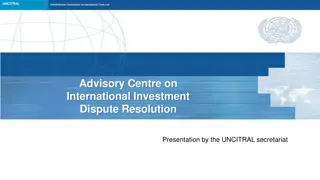Hunting as a green investment
The contentious issue of hunting as a green investment, analyzing its role in sustainability and conservation. Discusses the challenges and potential contributions of regulated hunting practices to the green economy, shedding light on the ethical, ecological, and economic perspectives. Addressing the complex narratives and conflicts in the hunting industry, it aims to foster new dialogues and solutions for balancing wildlife preservation, community empowerment, and environmental protection.
Download Presentation

Please find below an Image/Link to download the presentation.
The content on the website is provided AS IS for your information and personal use only. It may not be sold, licensed, or shared on other websites without obtaining consent from the author.If you encounter any issues during the download, it is possible that the publisher has removed the file from their server.
You are allowed to download the files provided on this website for personal or commercial use, subject to the condition that they are used lawfully. All files are the property of their respective owners.
The content on the website is provided AS IS for your information and personal use only. It may not be sold, licensed, or shared on other websites without obtaining consent from the author.
E N D
Presentation Transcript
Hunting as a green investment Dr Simon Chiutsi Namibia University of Science and Technology (NUST) Hospitality & Tourism Dept 27 September 2023
Green investments-sustainable practices and investments that aim to reduce greenhouse gas emissions, conserve natural resources, and promote renewable energy sources. Focuses on transitioning to a low-carbon economy and implementing green technologies and solutions. The Context Investments made in renewable energy, energy efficiency, sustainable agriculture, and other environmentally friendly industries. In Namibia- hunting is a vital part of conservation and contributes to the economic sustainability of private game farms & communal conservancies
The Big Question? Is hunting green investment? Where does hunting fit in the green economy matrix?
Problematic framing of the hunting industry Debates on hunting tourism tend to follow ethical and ideological battle lines (Global South vs Global North) Animal rights movement (consumptive/non- consumptive) Potential biodiversity loss/negative ecological impacts Opinions on environmental benefits are divided Fragmented narratives by stakeholders Contrasting visions and objectives for the planet & people Resulting in difficulties to connect with global markets
Potential contribution of hunting tourism to green economy Regulated hunting practices support conservation efforts and ensure the sustainability of wildlife populations Hunting permits and fees generate revenue that can be used for wildlife conservation and habitat management When hunting is regulated and sustainable, it can help control populations of certain species Mitigating the environmental impacts of tourism, empowering communities, promoting their cultures, and contributing to essential social protection systems. Issues of HWC-tourism sector that addresses people and planet issues
Local community concerns Human wildlife conflict is on the increase (this is also the case in Namibia & Botswana) Ineffective problem animal control causing a real danger to livestock and people Secretive nature of the hunting industry-closed sector Balancing the interests of the stakeholders-marginal communities continuously sidelined Criminalizing hunting and other related wildlife resource utilization Local communities cannot play an important role in biodiversity conservation without getting direct benefits from the conservation initiatives
Amplify community voices on hunting and conservation Research and evidence-based narratives in the international community on contextual sustainability Recommendations Regional coordination and harmonization of policies and laws (Shoot to kill policies in some countries in SADC)
